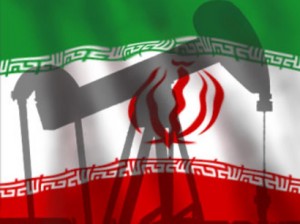 LONDON, Feb 14 (Reuters) - Oil prices rose on Thursday as fresh tensions over Iran's nuclear programme revived global supply concerns, offsetting weaker-than-expected growth data from France and�Germany.
LONDON, Feb 14 (Reuters) - Oil prices rose on Thursday as fresh tensions over Iran's nuclear programme revived global supply concerns, offsetting weaker-than-expected growth data from France and�Germany.Crude�futures�prices had dropped after data showed Europe's two largest economies shrunk markedly in the last quarter of 2012, dampening recent optimism over the region's recovery.
Markets changed direction shortly afterwards when the United Nations nuclear watchdog said it had again failed to clinch a deal in talks with Iran on investigating its nuclear programme.
Brent crude�rose 25 cents to $118.13 at 0924 GMT. The April futures became the front-month contract on Thursday. U.S. crude was up 27 cents at $97.28.
"News that the IAEA (International Atomic Energy Agency) and Iran failed to reach a deal created a rebound in prices after an initial drop following the GDP data that was weaker than expected," Olivier Jakob, analyst at Petromatrix, said.
Tensions in the Middle East, the world's largest oil exporting region, heighten investors concerns over supply disruption.
The German�economy�contracted by 0.6 percent on the quarter, official data showed on Thursday, marking its worst performance since the global financial crisis was raging in 2009 and coming below analysts' forecasts.
France's 0.3 percent fall was also a touch worse than expectations.
"All the discussions about Iran are keeping oil high while it looks like�China�and the U.S. are growing which is further supporting prices," Thorbjoern Bak Jensen, analyst at Copenhagen-based Global Risk Management, said.
"However, lower growth in Europe will dampen oil demand."
Oil has been drawing strength from indications that a moderate global economic recovery is gaining traction.
Investors are now waiting for the outcome of the meeting of�finance�ministers and central bankers of the G20 countries later this week which may throw more light on the outlook for the global economy.
Factory output in the�euro zone�increased in December for the first time since August, by 0.7 percent, beating analyst expectations for a 0.2 percent increase.
That adds to purchasing manager surveys released earlier that showed factory activity in the United States and China picked up, while the service sector in all three regions showed signs of optimism.
Optimism that oil consumption would improve as the economy revives was offset by the IEA's cut in its 2013 demand growth forecast by 90,000 barrels per day to 840,000 bpd, contrasting a rise in forecast by two other agencies.
However, the U.S. Energy Information Administration and the 12-member Organization of the Petroleum Exporting Countries forecast a faster-than-expected growth in global oil demand this year.
The disparate forecasts by OPEC and IEA "shows the complexities oil traders face and how difficult it is to anticipate demand", Miguel Audencial, sales trader at CMC Markets in Sydney, said in a report.
By Reuters
The Iran Project is not responsible for the content of quoted articles.










